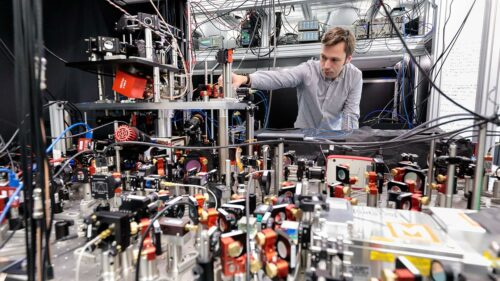Researchers at the University of Chicago have developed a groundbreaking method for continuously surveilling noise encompassing a quantum system.

Although quantum computers can solve previously unsolvable problems, they are inherently more error-prone. These computers’ delicate computational building blocks, known as qubits, can easily be disrupted by even minor perturbations in their surrounding environment. Quantum computers are susceptible to external disturbances because of the enormous effects that temperature, pressure, or magnetic field change can have on their operation.
Researchers at the University of Chicago’s Pritzker School of Molecular Engineering have developed a novel approach for continuously monitoring noise surrounding a quantum system. This method enables real-time adjustments of qubits to minimize errors.
A daunting challenge
As quantum computers scale up, noise and error become bigger challenges. Qubits are sensitive to their surroundings, causing information alteration and increased error rates. Moreover, measuring a qubit to assess noise collapses its state, resulting in data loss. Theoretical physicists suggested using spectator qubits to track environmental changes in a quantum computer, similar to noise-cancelling headphone microphones. Unlike regular microphones that only detect sound waves, these spectator qubits would detect perturbations that could affect qubits.
Two kinds of qubits for noise cancellation
The researchers have achieved a hybrid atomic quantum processor with rubidium and caesium atoms. They’ve modified it, using rubidium as data qubits and caesium as spectator qubits. The team have developed a system to read real-time data from rubidium atoms and adjust caesium atoms through microwave oscillations. The team developed a system that constantly retrieves real-time data from rubidium atoms and adjusts caesium atoms using microwave oscillations in response.
Proof-of-principle
The team subjected the quantum array to magnetic field noise to verify error minimization. The system immediately cancelled out the rubidium atoms when it discovered caesium atoms. The research group views the initial prototype as a starting point and plans to increase noise levels, vary perturbation types, and test the approach’s resilience. The team envisions a system of spectator qubits that can continuously operate in the background of any neutral atom or other quantum computer architecture, reducing errors during data storage and computations.







